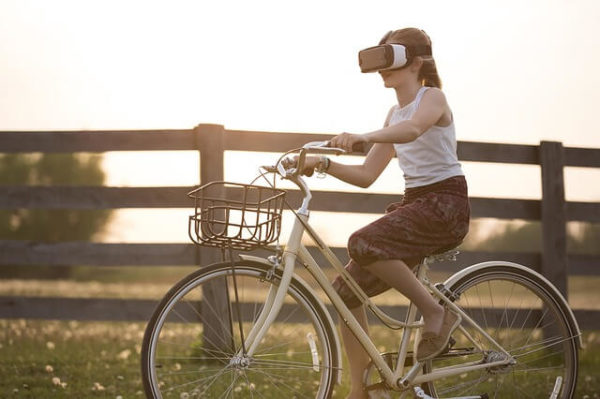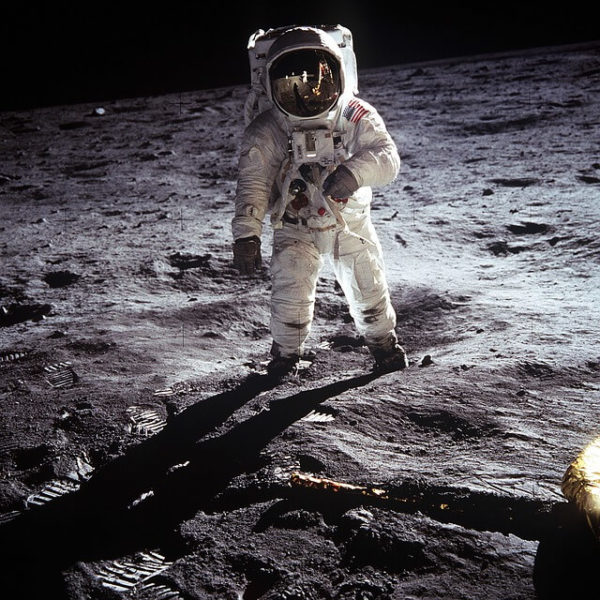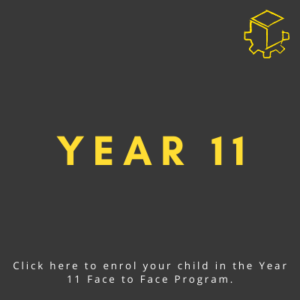HERE TODAY, GONE TOMORROW : THE JOBS OF THE FUTURE
The world is changing faster than ever before, and with it, jobs are rapidly disappearing and workplaces being reinvented. We’re in the early phases of a second industrial revolution, as the rise of automation, artificial intelligence and robotics looms, and the fate of traditional employment hangs in the balance.
While robots will eventually replace many human workers, their implementation will see the rise of jobs that we’ve rarely considered, and other more traditional areas will thrive as the population grows older and the world changes around us.
Following is a snapshot of the future, showcasing jobs we never could have imagined, which are in line to become the new normals.
 DATA ANALYSTS
DATA ANALYSTS
We are creating more data than ever before — right now, humans create 2.5 quintillion bytes of data every day, and as the world moves further into technology, our data output will continue to increase. In fact, IDC predict that, by 2020, every human on the planet will generate around 1.7 megabytes of new data every single second of the day.
The World Economic Forum surveyed thousands of CEOs from around the globe and across various industries, and the overwhelming majority agreed that data analysts were on the top of their ‘to hire’ list.
For companies, information will become the most important, most valuable currency, and so it is vital that they have experts capable of using this to its full potential. Data analysts will be as important to the Information Age as the prospector was to the Gold Rush.
After all, what’s the point in having all of this data, if you can’t mine it for all its worth? For businesses, plenty of data means tonnes of opportunities to mine this information for rich consumer insights, leading to better marketing and therefore better sales.
 VR
VR
Virtual reality, or VR, is tipped to become the next dominant platform after smartphones, with experts predicting that, by 2025, we will spend hours each day in digital spaces, working, learning and playing.
Entire worlds will be created for us to explore, and they will be so immersive, interactive and realistic that they will be almost indistinguishable from the real thing.
The VR takeover it already underway. According to market researchers CCS Insight, more than 12 million virtual reality headsets will be sold in 2017. And, by 2020, the total global market for VR technology will be worth $40bn.
Over the next ten years, a new global industry will develop, creating, supporting and managing these new virtual domains, that will eventually become a part of our normal, everyday lives.
ROBOTICS
According to research by Bank of America Merrill Lynch, the global robotics market is set to boom to a massive $153 billion over the next five years — $70 billion for artificial intelligence systems, and $83 billion for robots.
By next year, there will be over 50 thousand new jobs in robotics alone, and this will continue to grow by 5% each year. Autonomous robots will account for almost a quarter of the annual growth in automation every year until 2024, dominating the smart machine market.
Until robots can build themselves, there will be plenty of positions available in the robotics industry, compromising everything from engineering right through to ethical rights.
FREELANCE BIOHACKING
Biohacking is perhaps one of the most exciting industries set to blossom in the future, bringing together teams of scientists from all over the globe to cure disease, reverse extinction and facilitate mass scientific breakthroughs.
Hank Greely, director of Stanford University’s Centre for Law and the Biosciences says it isn’t hard to imagine a future where we’ll “fix everything from eye problems to liver disorders to muscular dystrophy with targeted genetic tweaks”. He sees promise in almost everything, from finding a next generation of antibiotics, to the creation of genetically modified creatures.
He even jokes that bio-hackers will be able to create a unicorn, in the future, ready for ‘“some billionaire’s 12 year old daughter.”
Feng Zhang, co-creator of gene editing innovator CRISPR, believes that biohackers will help to save – or even bring back from extinction – species of wild and domestic animals. Many people already working in the early versions of the biohacking field believe that future biohackers will hold the best hope of game-shifting science and technology breakthroughs because they are not tied down by the bureaucracy of mainstream research.
The magic is in the flexibility — right now, academics have to fill in millions of forms, wasting time and money in the process. This hinders radical research, but in the future, freelance biohackers will just do it anyway, curing people without having to jump through the hoops first.
As Zhang says, “give people access to these tools and technology, and we’ll let them loose to change the world.”
IOT DATA CREATIVE
Over the next decade, everything from our homes and businesses will become intertwined in the ‘Internet of Things’. The IoT draws together billions of digitally connected devices, compromising everything from fridges, washing machines, entertainment systems and energy control centres — our lives will essentially begin to look a lot like Tony Starks, with everything constantly talking to each other, and talking to us.
A measure of how all-encompassing the IoT will become can be seen in the steep growth in sales of connected devices already. IDC predicts the global market for IoT technology will grow from $1.9 trillion in 2013 to $7.1 trillion in 2020.
Connected devices will control everything — they will monitor our health, manage our work, restock food, automatically call for help when something is wrong and organise our leisure plans.
However, this constant, ongoing deluge of information must be managed effectively, to be used in a way that will allow us to improve both our lives and the future versions of the devices.
This challenge will see the creation of an entirely new industry, one that is starting to emerge now.
The demand for IoT developers rose by 215% last year, and information security analysts by 113%.
The Centre for Economics and Business Research predicts that, in the UK alone, there will be 182’000 new jobs created, and $531 billion will be added to the economy, by 2020.
SPACE TOURISM
It seems like something out of the movies, but before we know it, space will be just another brochure that you pick up from the travel agency. Earth orbit will become the newest destination for intergalactic holidays by as early as the mid 2020s, and whole new categories of jobs will pop up, in order to make space discovery both safe and enjoyable.
Space Tour Guides will work much like those on the ground, using their knowledge of satellites, space junk and the leftovers of missions in order to craft the perfect tour through orbit.
They will also work to find, plot and record the locations of forgotten or abandoned spacecrafts, to create a log of ‘orbiting memorabilia’ from man’s first half century of space exploration.
RE-WILDING STRATEGIST
By 2025, over 9 billion humans will call the Earth home, stretching our natural ecosystems to the absolute limit. Mega-cities will drain resources, and demands will continue to increase daily, meaning that traditional conservation strategies will no longer be enough.
Re-wilding Strategists will stitch together viable ecosystems in stressed landscapes, using patchworks of flora and fauna from all over the world, rather than worrying about only using indigenous species.
Along with bio-hackers, they will reintroduce extinct plants and animals that may have been lost for centuries, and manage assisted migrations to ensure the creation of resilient and vibrant landscapes in the face of advancing climate change.
The strategists will also look to innovation, discovering ways to ‘re-wild’ the remnants of our industrial past. Abandoned steel towns, defunct coal mines and factories will be turned back to land, as re-wilders turn them into forests filled with animals and plants rather than preserving them as sterile heritage sites.
HUMAN BODY DESIGNER
While this job seems like a deep dive into the world of science fiction, human body design and enhancement is not too far away. Over the next twenty tears, bio-engineers will have extended the average human lifespan to more than a century, as the growth of replacement organs and tissues becomes an affordable norm.
Design skills will be combined with bio-engineering knowledge to create huge ranges of customised body parts, whether to perfectly match a subjects existing body, or entirely change it.
We will also see the emergence of body modification in ways we can only imagine right now — human body designers will be responsible for crafting exotic new looks or enhanced functionality for particular jobs or sports.
Pop-up body shops will become part of every virtual and bricks and mortar shopping centre, giving us more options than ever before, for health and for vanity.
PERSONAL CONTENT CREATOR
Our bodies won’t be the only thing open to change and innovation — our minds will soon become a place for change, too. By the late 2020s, software-brain interfaces, led by teams of neuroscientists, will begin to enter the mainstream, allowing mass audiences to read and capture thoughts, memories and dreams.
Personal Content Creators will help people to use these systems to increase the storage capacity of their over-stretched minds, providing services that allow them to dip in and out of treasured memories and experiences at will.
PCC’s will also help to curate the memories and experiences of the recently deceased, so that their family and friends can obtain a ‘showreel’ of their lives.
The future is closer than ever before, and work as we know it is starting to change.
For tips on how to prepare yourself for this exciting, but uncertain future, check out our article here about future proofing yourself.

 DATA ANALYSTS
DATA ANALYSTS VR
VR









